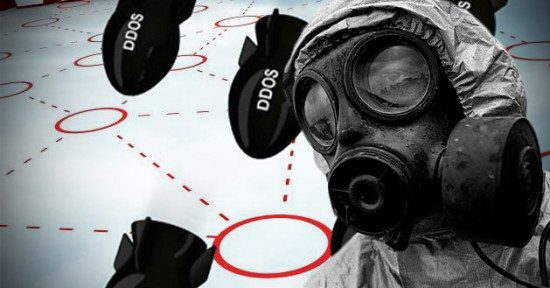Marc Gaffan, VP and GM of the Incapsula product line at Imperva, commented on news that the Thai Government was hit by a DDoS cyberattack and that tens of thousands of people have signed a petition against the proposal they call the “Great Firewall of Thailand,” a reference to the so-called “Great Firewall of China” commonly used to refer to the Chinese government’s censorship over Internet content.
[su_note note_color=”#ffffcc” text_color=”#00000″]Marc Gaffan, VP and GM of the Incapsula product line at Imperva :
”Distributed Denial of Service, or DDoS, attacks have become a weapon of choice for activists of all kinds around the world. Activist groups, and hacktivist groups like Anonymous and others have attacked US and Canadian governments, so it’s no surprise that a wider range of global activists are attempting this approach.
“This news from Asia follows the historic US-China cybersecurity agreement reached a few days ago, which we hope will decommission the ‘Great Cannon’ – China’s cyber weapon that is used take websites offline with massive denial of service attacks. While the weapon cannot be used to steal intellectual property directly, it does have a significant, negative economic impact in bringing down service businesses, as we saw with GitHub earlier this year.”[/su_note][su_box title=”About Imperva®” style=”noise” box_color=”#336588″] Imperva® (NYSE:IMPV), is a leading provider of cyber security solutions that protect business-critical data and applications. The company’s SecureSphere, Incapsula and Skyfence product lines enable organizations to discover assets and risks, protect information wherever it lives – in the cloud and on-premises – and comply with regulations. The Imperva Application Defense Center, a research team comprised of some of the world’s leading experts in data and application security, continually enhances Imperva products with up-to-the-minute threat intelligence, and publishes reports that provide insight and guidance on the latest threats and how to mitigate them. Imperva is headquartered in Redwood Shores, California.[/su_box]
Imperva® (NYSE:IMPV), is a leading provider of cyber security solutions that protect business-critical data and applications. The company’s SecureSphere, Incapsula and Skyfence product lines enable organizations to discover assets and risks, protect information wherever it lives – in the cloud and on-premises – and comply with regulations. The Imperva Application Defense Center, a research team comprised of some of the world’s leading experts in data and application security, continually enhances Imperva products with up-to-the-minute threat intelligence, and publishes reports that provide insight and guidance on the latest threats and how to mitigate them. Imperva is headquartered in Redwood Shores, California.[/su_box]
The opinions expressed in this post belongs to the individual contributors and do not necessarily reflect the views of Information Security Buzz.



